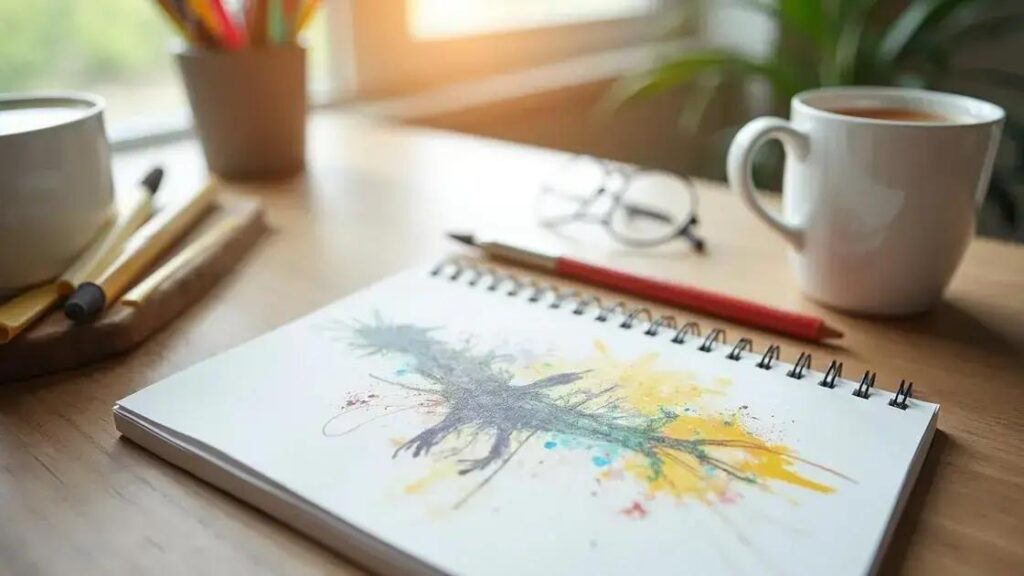Creative hobbies offer numerous benefits for stress management, including mental distraction, emotional expression, and mindfulness. Engaging in activities like painting, gardening, and writing helps reduce anxiety and improves overall well-being, making it essential to find a hobby that excites you and to dedicate regular time to it.
Stress management is essential for a healthy, balanced life. One powerful way to combat stress is through creative hobbies. Engaging in activities like painting, knitting, or writing can significantly decrease anxiety levels and improve overall well-being. In this article, we will delve into the benefits of creative hobbies for stress management, exploring their positive impact on mental health and sharing tips on how to incorporate them into your daily routine.
Understanding Stress and Its Effects
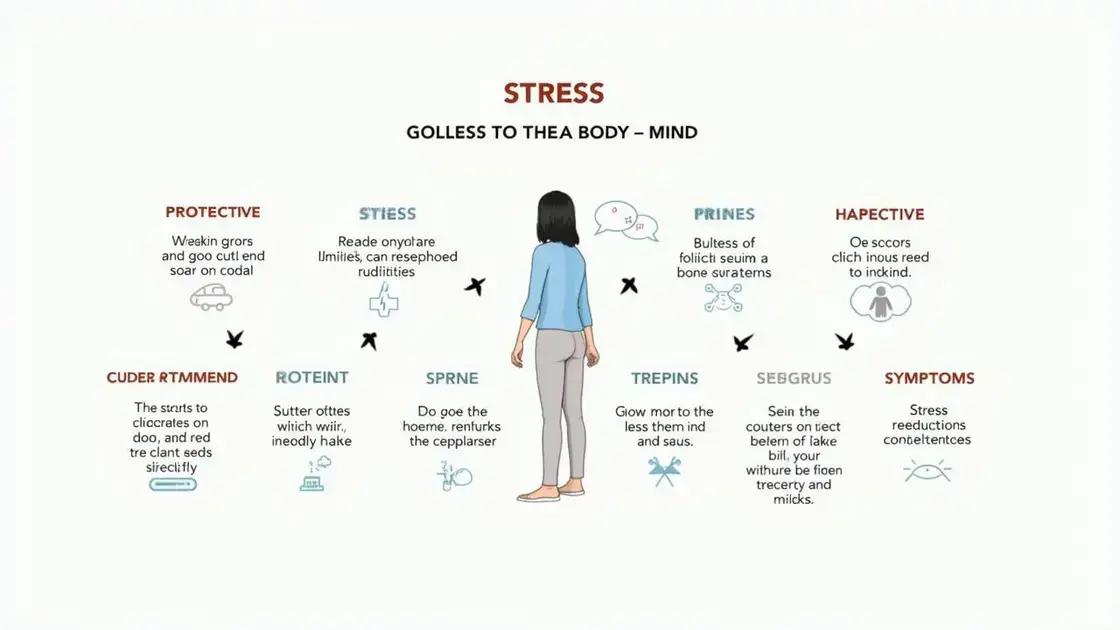
Understanding Stress is crucial in today’s fast-paced world. Stress occurs when we feel overwhelmed by pressures and demands on our time. It can come from various sources, such as our work environment, personal relationships, and even our expectations of ourselves. Stress triggers can vary widely for each individual, and how we respond to stress is vital for our mental health.
Effects of Stress on the Body
When we experience stress, our body reacts physically. This response can lead to symptoms like headaches, fatigue, muscle tension, and digestive issues. Long-term exposure to stress can affect our immune system, making us more susceptible to illnesses.
Mental and Emotional Impacts
Stress can also take a toll on our mental and emotional health. It can lead to feelings of anxiety, depression, or irritability. Chronic stress can affect our ability to concentrate and can hinder our decision-making skills. This can create a cycle where stress leads to poor choices, which in turn causes more stress.
Identifying Your Stress Triggers
To manage stress effectively, it’s important to identify what triggers your stress. These triggers can be external, like job deadlines, or internal, like self-criticism. Keeping a journal can help you recognize your stress sources and how they affect your mood and energy levels.
Understanding stress and its effects is the first step toward effective stress management. By recognizing how stress influences our bodies and minds, we can begin to explore strategies, such as creative hobbies, that may help mitigate these negative effects.
How Creative Hobbies Reduce Stress
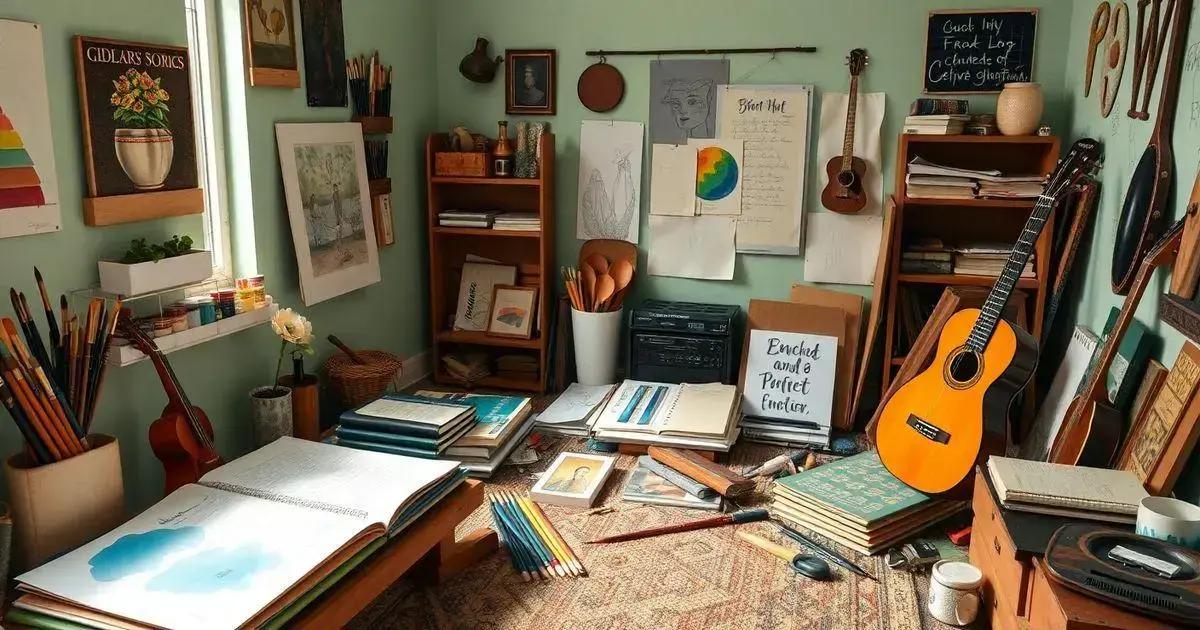
Creative hobbies can be a great way to reduce stress. Engaging in activities like painting, gardening, or writing allows our minds to shift focus. This shift can be refreshing and helps reduce the burden of daily stressors.
Mental Distraction
When we immerse ourselves in a creative hobby, we often enter a state of flow. This means we become so involved that we forget our worries for a while. This mental distraction provides relief and can lead to a clearer mind.
Emotional Expression
Creative activities allow us to express our feelings in ways words sometimes cannot. Whether through art, music, or writing, these outlets can help release pent-up emotions. This release may reduce anxiety and enhance our sense of well-being.
Mindfulness and Relaxation
Participating in creative hobbies encourages mindfulness. By focusing on the present, we can learn to appreciate the small moments. Activities like coloring or knitting can slow down our thoughts, leading to relaxation.
Building Confidence
Completing a creative project gives a sense of achievement. This boost in confidence can improve our mood and perspective on life’s challenges, reducing overall stress levels. The act of creating something unique can remind us of our abilities.
Incorporating creative hobbies into your life can serve as an effective way to manage stress. By allowing ourselves the time to engage in these activities, we can improve our mental health and enjoy life more fully.
Top Creative Hobbies to Try
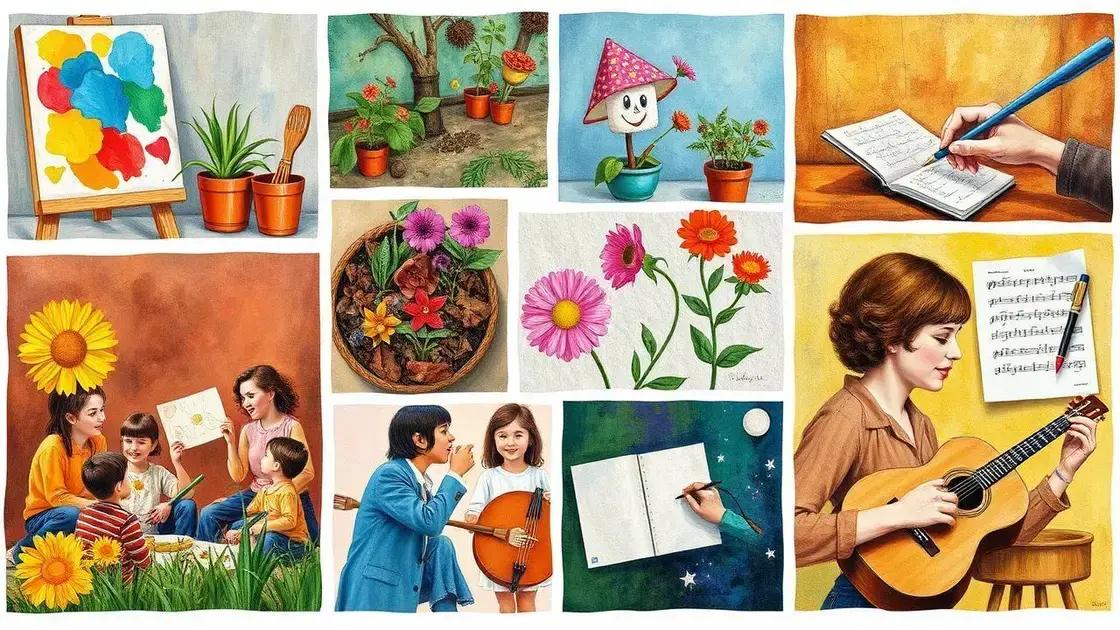
Finding the right creative hobby can help manage stress and bring joy to your life. Here are some top hobbies to try:
1. Painting and Drawing
Expressing yourself through painting and drawing allows you to let your imagination flow. You don’t need to be an expert; just grab some colors and start creating!
2. Gardening
Working with plants can be very calming. Gardening not only gives you fresh air but also connects you with nature. It’s rewarding to see your plants grow.
3. Writing
Writing, whether it’s poetry, journaling, or stories, is a great way to express feelings. Creative writing can channel your thoughts and emotions and is also quite therapeutic.
4. Crafting
Activities like knitting, scrapbooking, or making jewelry engage your hands and mind. Crafting offers a sense of accomplishment and keeps you focused on your task.
5. Playing a Musical Instrument
Learning to play an instrument can be challenging, but the satisfaction is immense. Music allows for emotional expression and can brighten your mood significantly.
6. Photography
Photography encourages you to look at the world differently. Capturing moments can be very fulfilling and provide lasting memories. Exploring photography can help you appreciate your surroundings more.
7. Cooking and Baking
Creating meals or desserts can be very rewarding. Cooking and baking allow for creativity while also giving you delicious results to enjoy.
These hobbies can provide enjoyment and help reduce stress. It’s essential to find one that resonates with you and fits into your lifestyle.
Getting Started with Your Creative Hobby
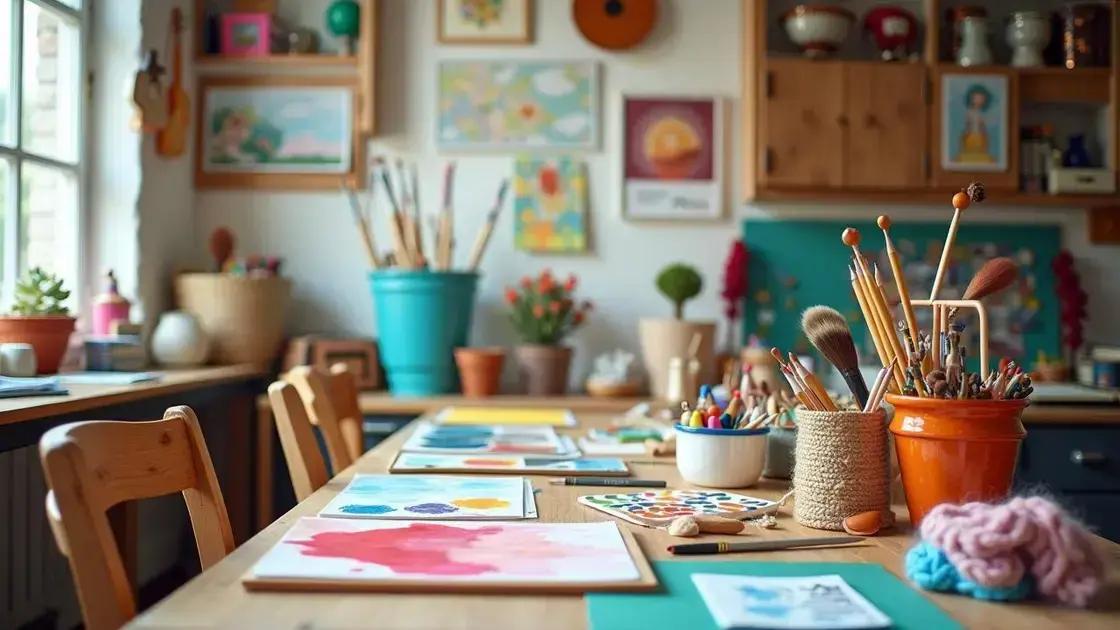
Getting started with your creative hobby can be exciting and rewarding. Here are some simple steps to help you begin:
1. Choose Your Hobby
Start by selecting a creative hobby that interests you. Whether it’s painting, knitting, or playing an instrument, choose something that excites you.
2. Gather the Supplies
Once you have chosen your hobby, gather the necessary supplies or materials. If you’re painting, get brushes and canvases. If you’re knitting, grab some yarn and needles. Don’t worry about having everything; you can start small.
3. Set Aside Time
Schedule time for your hobby. Make it a priority to engage in your creative activity regularly. Even 15-30 minutes a day can help you enjoy and improve your skills.
4. Look for Tutorials
If you’re new to the hobby, consider finding tutorials online. Websites, videos, and articles can provide helpful guidance. Learning from others can make it easier to get started.
5. Join a Community
Connecting with like-minded individuals can enhance your experience. Look for local clubs or online forums where you can share ideas, seek advice, and find inspiration from others who enjoy the same hobby.
6. Be Patient and Have Fun
As you begin, it’s important to be patient with yourself. Remember that practice is key, and the main goal is to enjoy the process. Don’t worry about perfection; let your creativity shine!
By taking these steps, you can easily get started with your new creative hobby. This journey can bring joy and help you manage stress effectively.
In Conclusion: Embrace Creative Hobbies for Stress Management
Creative hobbies are not just fun; they can play a vital role in managing stress and enhancing overall well-being. By engaging in activities such as painting, gardening, or playing an instrument, you can experience mental relaxation and emotional expression.
Getting started with your own creative hobby is simple. Choose something that excites you, gather the supplies, and set aside time to enjoy your new passion. Connect with others and share your experiences to enhance your journey.
Remember, the goal is to find joy and relief from daily stresses through creativity. Don’t hesitate to explore different hobbies and discover what works best for you. Embrace your creativity and watch how it can transform your life!
FAQ – Frequently Asked Questions about Creative Hobbies for Stress Management
What are some examples of creative hobbies?
Examples of creative hobbies include painting, gardening, writing, crafting, playing a musical instrument, photography, and cooking.
How can creative hobbies help reduce stress?
Creative hobbies provide mental distraction, emotional expression, and mindfulness, which can lower anxiety and enhance overall well-being.
Do I need special skills to start a creative hobby?
No special skills are necessary to start a creative hobby. The key is to enjoy the process and allow yourself to learn as you go.
How much time should I dedicate to my creative hobby?
Even dedicating 15-30 minutes a day can be beneficial. Schedule time that fits into your routine to engage in your hobby.
Can I start a creative hobby on a budget?
Yes! Many creative hobbies can be started with simple and affordable materials, and you can gradually invest in more supplies as you grow.
Is it important to connect with others who share my hobby?
Yes! Joining a community or connecting with others can provide support, inspiration, and motivation to continue your creative journey.

